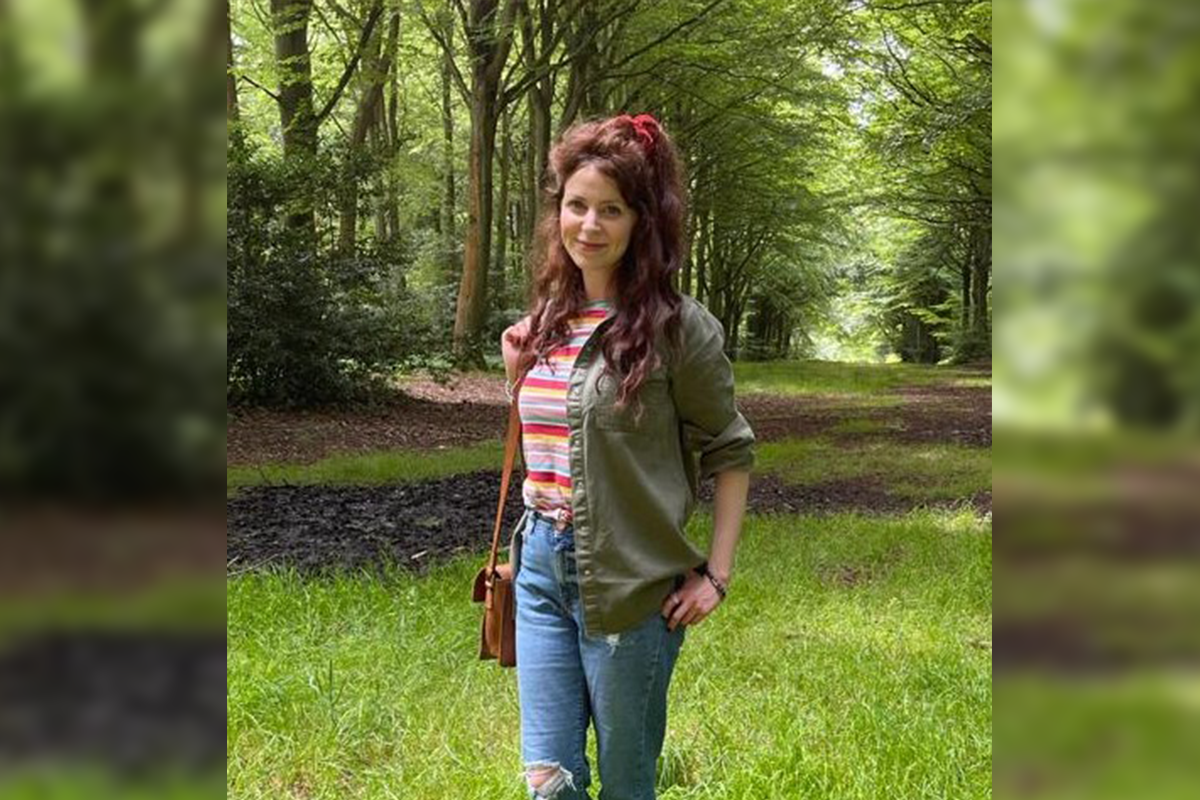
Isabelle King is a storyteller, creative writing tutor, and humanist school speaker based in Norfolk. We spoke to Isabelle to find out more about her experience of training and becoming a fully accredited humanist school speaker, how she goes about answering the questions posed to her by inquisitive young minds, and the importance of encouraging children to be curious, and ask questions about the humanist approach to life.
Hi Isabelle, what motivated you to become a humanist school speaker?
I think humanism can be very misunderstood as an approach to life. When I talked to my friends about humanism, they didn’t really know anything about it and assumed it to be an approach defined by ‘what you’re not’, or just by my lack of belief.
For me, humanism has been very positive. Far from an ‘absence’, it is an approach of meaning, purpose and clarity. As an enthusiast for literature and storytelling, I discovered some of my favourite authors and voices that I resonated with through literature were humanists and had communicated humanist themes, messages, and morals within their writing. I think these aspects of humanism – creativity, curiosity, empathy – can often be easily overlooked, but are very present within the arts.
I spent much of lockdown working on a creative project for Humanists UK to produce children’s stories and educational resources. My focus was on women in Humanist Heritage who had made significant contributions to building a more equal and fair society. I wanted children to be able to see some how people lived by a humanist approach using their imagination, ingenuity and determination to help people.
Having dived into understanding humanists of the past I was then keen to help give humanism a meaningful and accurate representation in the present, too.
What makes it important for children to learn about humanism in schools?
I think it is quite simply that equal opportunity in education is very important! For me it’s about creating the opportunity for children to learn about humanism through an accurate representation.
What was it like training with Humanists UK like, and how did it prepare you?
Training with Humanists UK was genuinely a very enjoyable day. The session was friendly and focused. Before the session we had been given a small task to prepare a presentation that we would give to the group, as if we were in a classroom. I felt a bit nervous about this but the group was really encouraging.
As well as friendly, the training was also rigorous! The group was encouraged to think about those challenging and tricky questions that schools might ask about humanism. It was very useful to consider this on the training day within a supportive group. It made me think clearly about my responses, so I felt properly prepared before visiting schools.
Could you describe your first school visit and how you felt?
My first school visit was during lockdown so it was virtual – and I learned a few things. I felt a bit daunted by the whole thing: a room full of school children staring at me through a screen! I think it’s only natural that you would be a bit nervous if you care about your presentation and want it to go well. I think the virtual nature of the session made me really focus on preparation in case of technological hiccups, so I asked the teacher to send me the children’s specific questions beforehand so I would have time to think about my responses.
Where possible, I’ll continue to do that. The pre-prepared structure took the pressure off a bit, helping the session to run smoothly so there was more room for spontaneity and chatting on the day. I think it’s important to have a bit of spontaneity and fun, that helps everyone to relax and learn.
Do you have any particular memorable experiences to share with us?
It felt very exciting to introduce the children to some figures from Humanist Heritage, particularly women who achieved great and interesting things. I started my talk by asking the children about their interests and hobbies, the things they like to do in their spare time. There were lots of football players and fans in the classroom so during the talk I introduced the class to Lady Florence Dixie.
Lady Florence Dixie challenged social conventions of the Victorian era by creating the first women’s football team. She did not think it was fair that women were not allowed to play football and showed tremendous courage and tenacity, paving the way for gender equality through this sport.
Drawing from real life stories, such as Lady Florence Dixie was a really helpful way to make links with humanist themes of fairness and equality.
What resonates with you about the humanist approach to life?
My favourite word to live by is curiosity! Growing up, I was always asking questions and wanting to find out more about people, their ideas and the world around me. I’m fascinated by the ways that humanists use curiosity to help others, whether through scientific advancement or creative expression to explore human experience. Curiosity is what motivates me most in life and you could say it’s what motivated me to become a school speaker.
Is there anything else you would like to share?
I am interested in further exploring and understanding humanist approaches to special needs, autism spectrum condition, and neurodiversity, how we can be more understanding and inclusive of disabilities and differences within education as humanists.
Thank you for your time, Isabelle!
If you’re interested in having a positive influence in your local schools and becoming a humanist school speaker, you can apply to our training today! Find out more about course dates and how to apply.

